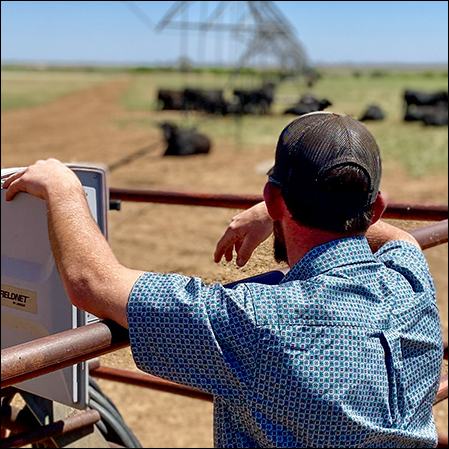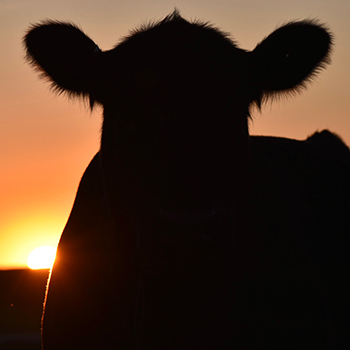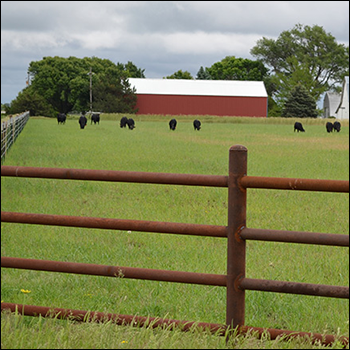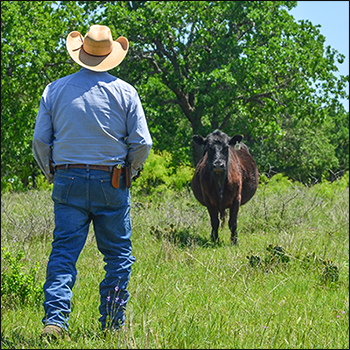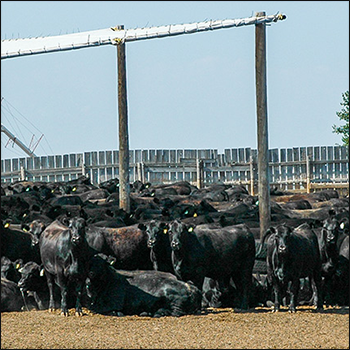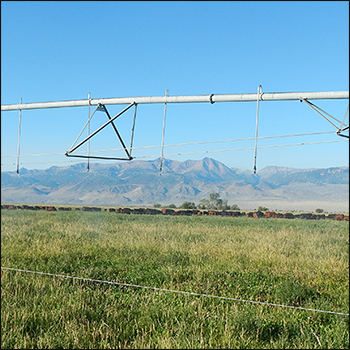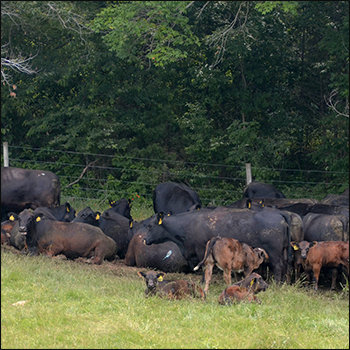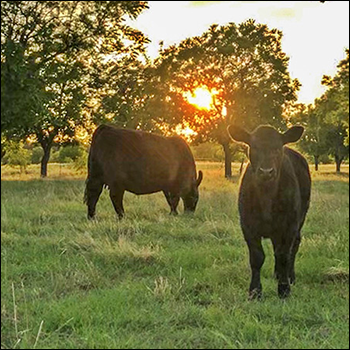News & Notes
Industry tidbits from around the country.

J. Neil Orth |
J. Neil Orth named 2021 Saddle & Sirloin Portrait Gallery inductee
Officials of the Kentucky State Fair Board recently announced that J. Neil Orth has been selected as the 2021 Saddle & Sirloin Portrait Gallery inductee. The portrait gallery serves as the livestock industry’s hall of fame. The Saddle and Sirloin award is one of the highest honors awarded to individuals in the livestock industry. The award is presented by the Saddle and Sirloin Award Committee based on an individual’s service and industry effects.
Neil Orth forged a career path in livestock marketing and leadership. In May 1968, Orth began a well-documented, successful career in livestock marketing as a young field representative for Vance Publishing’s (now Farm Journal) publication, Drovers Journal. Orth’s reputation as having a keen eye for phenotype preceded him as a marketer.
Later, he served as an executive for the International Brangus Breeders Association and the American-International Charolais Association.
Three generations of young people have benefited from Neil Orth’s mentoring and leadership, and parlayed their experiences into successful careers in the livestock industry. Two major breed associations have made course corrections. During a career that spans more than 50 years, Orth has received multiple awards from his peers, served on national and international boards and made significant and lasting industry contributions.
State agriculture officials celebrate bipartisan Senate passage of the Growing Climate Solutions Act
On June 24, state departments of agriculture celebrated the bipartisan passage of the Growing Climate Solutions Act. National Association of State Departments of Agriculture (NASDA) CEO Barb Glenn offered the following praise for the act:
“Through its voluntary structure and focus on supporting farmers, the Growing Climate Solutions Act enables all agricultural producers to further embrace climate-smart practices with new educational resources and economic certainty. State departments of agriculture ardently work to ensure the prosperity of agriculture and welcome the opportunity to assist farmers seeking to enter the carbon market.
“NASDA commends the U.S. Senate for holding to their commitment to act on climate policy and thanks Senator Stabenow, Senator Braun and Senator Boozman for leading the development of the Growing Climate Solutions Act in a strong bipartisan fashion.”
Water rule reversal a blow to agriculture
On June 9 American Farm Bureau Federation President Zippy Duvall expressed the organization’s “extreme” disappointment in the Environmental Protection Agency’s (EPA’s) announcement of its intention to reverse the Navigable Waters Protection Rule. Duvall noted that the Rule, one which farms and ranchers support, had brought clarity and certainty to clean water efforts.
“Administrator Regan recently recognized the flaws in the 2015 Waters of the U.S. (WOTUS) Rule and pledged not to return to those overreaching regulations,” Duvall commented in an official statement. “We are deeply concerned that the EPA plans to reverse the Navigable Waters Protection Rule, which puts the future of responsible protections at risk. We expected extensive outreach, but this announcement fails to recognize the concerns of farmers and ranchers.
“This is an important moment for Administrator Regan and will be pivotal to his ability to earn the trust of farmers on this and other administration priorities. He must keep his word to recognize the efforts of agriculture and not return to flawed, overly complicated and excessive regulations.”
USDA to begin payments for producers affected by 2018 and 2019 natural disasters
More than $1 billion in payments were to be released during the weeks following June 15 for agricultural producers with approved applications for the Quality Loss Adjustment (QLA) Program and for producers who have already received payments through the Wildfire and Hurricane Indemnity Program Plus (WHIP+). These USDA programs provide disaster assistance to producers who suffered losses to 2018 and 2019 natural disasters.
Producers weathered some significant natural disasters in 2018 and 2019, and USDA’s Farm Service Agency (FSA) provided support for crop value and production losses through QLA and crop quantity losses through WHIP+.
“From massive floods to winter storms, and from extreme drought to excess moisture, natural disaster events in 2018 and 2019 were exceptionally catastrophic for agricultural producers nationwide — many suffered the impacts of multiple events in not just one but both years,” said FSA Administrator Zach Ducheneaux. “FSA staff worked tirelessly for many months to develop and implement comprehensive disaster programs that meet the varying and unique needs of a large cross-section of U.S. production agriculture. QLA and the second round of WHIP+ assistance will provide much-needed assistance to help producers offset significant financial loss.”
New study highlighting the negative effects of transfer taxes
On June 15 the Texas A&M Agricultural and Food Policy Center released a report quantifying the negative effects imposing new transfer taxes will have on U.S. cattle and beef producers. The conclusions of the study support National Cattlemen’s Beef Association’s (NCBA’s) position on tax policy for rural America that creates a viable business climate for family-owned businesses, including farms and ranches. This study, requested by Ranking Member of the Senate Committee on Agriculture, Nutrition and Forestry John Boozman and Ranking Member of the House Committee on Agriculture GT Thompson, reveals the significant effects two proposed bills would have on long-standing provisions in the tax code.
Producers remain bullish on farmland values
The Purdue University/CME Group Ag Economy Barometer saw a significant decline in May, down 20 points to a reading of 158. This marks the lowest reading for the survey since September. Producers were less optimistic about both current conditions and the future of the agricultural economy. The Index of Current Conditions dropped 17 points to a reading of 178, and the Index of Future Expectations fell 20 points to a reading of 149. The Ag Economy Barometer is calculated each month from 400 U.S. agricultural producers’ responses to a telephone survey. This month’s survey was conducted May 10-14.
“The potential for changing tax rules and rising input costs appeared to be on producers’ minds this month and were the primary drivers for the Ag Barometer’s decline,” said James Mintert, the barometer’s principal investigator and director of Purdue University’s Center for Commercial Agriculture.
Producers expressed less optimism about their farm’s financial performance this month. The Farm Financial Performance Index declined to 126 from a record high 138 in April. Although May’s index was 12 points lower than a month earlier, it was still the second-highest reading since the financial performance question was first posed in spring 2018, suggesting strong crop prices continue to support farm incomes.
Vilsack urged to address challenges at ports
With delays and congestion at U.S. ports hurting U.S. agriculture exports, including meat and poultry products, the North American Meat Institute (Meat Institute) urged U.S. Secretary of Agriculture Tom Vilsack and the Congress to confront the crisis as part of efforts to improve and strengthen the food supply chain.
“As part of USDA’s focus on ensuring America’s food supply chain is resilient, diverse and secure, we urge Secretary Vilsack to help resolve persistent challenges at our ports,” said Julie Anna Potts, president and CEO of the Meat Institute.
At issue is the continued behavior of ocean carriers to decline to carry U.S. agriculture commodity exports and instead return empty containers to Asian markets to fill them with more lucrative consumer goods to export back to the United States. Further, ocean carriers and marine terminal operators are charging excessive and unreasonable detention and demurrage fees assessed on U.S. importers and exporters for the failure of these importers and exporters to either retrieve a container from a marine terminal or return one within a specified amount of time, even if delays in retrieving or returning containers are beyond the control of the importer or exporter.
“Failure to hold these carriers accountable could have long-lasting, detrimental effects for the trade-dependent U.S. meat and poultry industry and agriculture sector, which has caused $1.5 billion in lost revenue,” said Potts. “If current ocean carrier practices persist, and are not subject to oversight, then the U.S. meat and poultry industry, its workers and the communities it supports will struggle to access these vital markets that have been cultivated over decades.”

